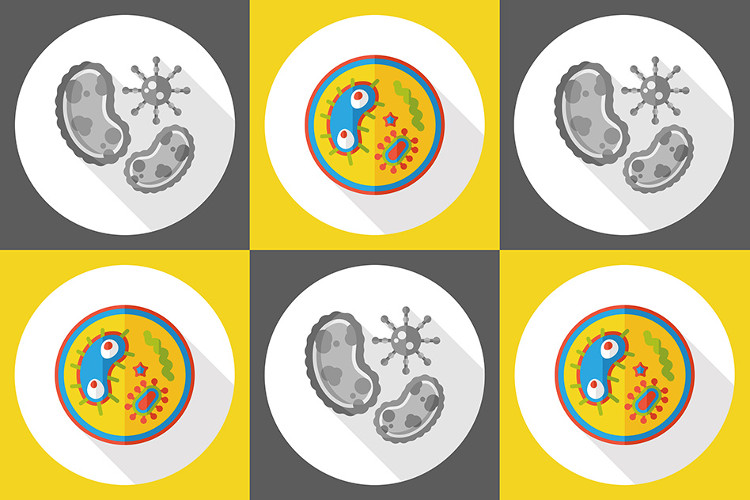New weapons help kill drug-resistant bacteria
A new type of peptide can puncture bacterial cell membranes, disrupt the function of important organs to kill drug-resistant bacteria.
The research team from Massachusetts Institute of Technology, Barsilia University and the University of British Columbia successfully produced an antimicrobial peptide that could kill bacteria, even antibiotic-resistant bacteria. It gives human protein a "biological weapon" to fight many types of infections, Nature World News reported on November 4.

New peptides can kill many types of bacteria, including antibiotic-resistant bacteria.(Photo: MIT News).
The British Council study estimates that by 2050, bacteria can kill 10 million people a year without new antibiotics. This is a serious problem because bacteria are gradually developing resistance to antibiotics. Traditional medicines will no longer work for them in the future. This has led researchers and scientists to continually create new drugs, but they may not work if they use conventional methods.
Peptides are compounds containing 2-50 α radicals - amino acids linked together by peptide bonds. Recent research has created a synthetic peptide called clavanin-MO , which has strong immunomodulatory and antibacterial properties in vitro and live body experiments. Antibacterial peptides can puncture the bacterial cell membrane and disrupt the function of important organs. It can destroy DNA, RNA and bacterial proteins, thus effectively destroying them.
Clavanin-MO is enhanced by adding a series of 5 amino acids to make it hydrophobic, meaning that clavanin-MO can contact and convert membranes more effectively. Experiments on mice showed that clavanin-MO can kill E.coli and Straphylococcus bacteria, which are highly resistant to antibiotics.
The team is looking for ways to make clavanin-MO work better. If improved, it can be used for humans along with traditional antibiotics.
- Bacteria resistant to all drugs discovered in the US
- Inoculate the stool to kill resistant bacteria in the intestine
- Bacteria also know 'suicide bombing'
- Detecting weaknesses can help kill drug-resistant viruses
- Video shows: Bacteria become resistant 1,000 times in just 2 weeks
- Bad habits of parents hurt the liver and kidneys, endanger children
- The danger that people still misunderstand can kill 10 million people every year
- Cockroaches and grasshoppers can kill resistant bacteria
- Drug-resistant microorganisms - An evolutionary process
- Outbreaks of new viruses resistant to drugs
- G8 discusses how to fight doctors
- Find out how to identify resistant bacteria in minutes
 The United Nations' all-human warning: All antibiotics are becoming useless
The United Nations' all-human warning: All antibiotics are becoming useless How did bacteria learn to fight antibiotics?
How did bacteria learn to fight antibiotics? 10 million deaths are one of the startling numbers about 'Antibiotic resistance'.
10 million deaths are one of the startling numbers about 'Antibiotic resistance'. 7 principles when using antibiotics
7 principles when using antibiotics The hidden fuel of the human brain: How gut bacteria shape intelligence?
The hidden fuel of the human brain: How gut bacteria shape intelligence?  New bacteria appear in unexpected places
New bacteria appear in unexpected places  3,600-year-old cheese 'reveals' secrets of ancient food preparation
3,600-year-old cheese 'reveals' secrets of ancient food preparation  Spanish mother and daughter experts 'train' bacteria to restore paintings
Spanish mother and daughter experts 'train' bacteria to restore paintings  NASA is worried about mutant bacteria in the Space Station spreading to Earth
NASA is worried about mutant bacteria in the Space Station spreading to Earth  Identifying the deadly link between oral bacteria and cancer
Identifying the deadly link between oral bacteria and cancer 